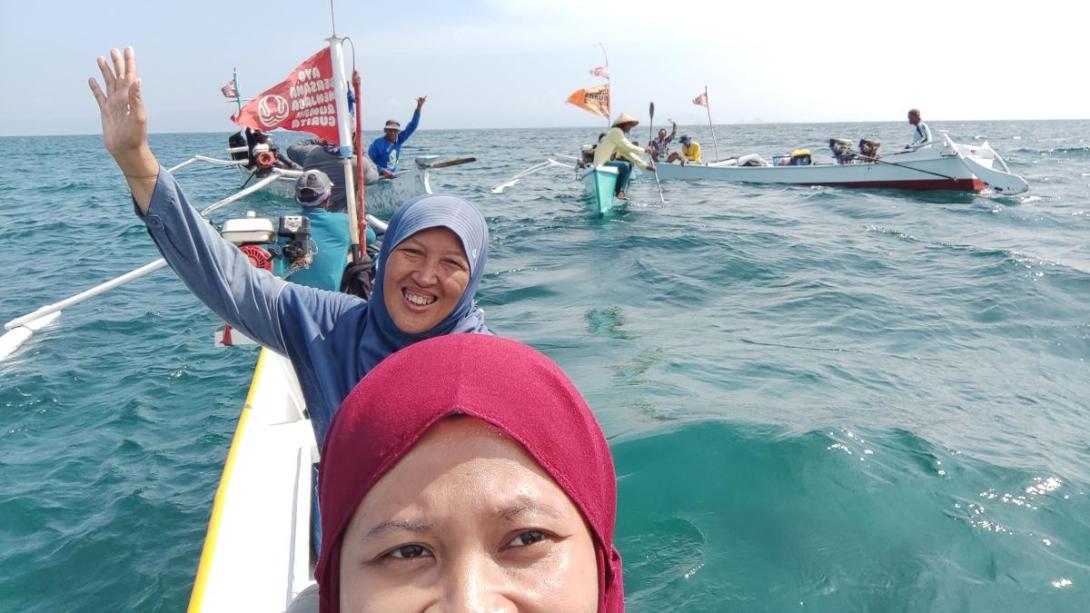
“This project makes me not just a facilitator, but a listener, observer, and a believer in women’s strength on the shore.”
The whole program aims to help coastal communities, especially women, see business opportunities to be able to start businesses so that they have additional income as one of the strategies for sustainability of saving groups, reducing debt, and having stable family financial.
Main Objectives:
- Improving knowledge, skills and building confidence in 3 groups of women to become women entrepreneurs through Business Concept Training sessions for beginners.
- With the formation of these women's groups, it is hoped that they can create a social environment that is friendlier to women (increasing the value of women in society) and can involve women in activities in the village, especially in building a sustainable village economy.
- Create a business plan as a reference, women's groups are more confident in starting a business that can see market opportunities and sustainable business management.
The Women on the Shore (WOTS) project, initiated by Dita Rayn Amorisa through JARI (Lembaga Juang Laut Lestari), was designed to empower fishermen's wives in Poto Tano Village, West Sumbawa, by helping them explore entrepreneurial opportunities and improve their family income. The project used participatory methods like FGDs, workshops, and community coordination to build confidence, identify business ideas, and provide financial literacy and product development training. Despite delays and challenges—including political misunderstandings, participant dropouts, and extreme weather—the project successfully adapted through strong community involvement and co-design principles.

Key activities included intensive workshops on business planning, sharia-based financial management, and octopus product processing, engaging 12 verified women participants. The participants created three types of octopus-based products—octopus sambal, fried meatballs, and sticks—and tested marketing strategies by selling around the port, in stalls, and on Kenawa Island. The women gained basic bookkeeping skills, developed a group business plan, and reflected regularly on their learning through photovoice and journals. The project culminated in creating small marketing teams and preparing for product branding and licensing processes.
WOTS also had a ripple effect. The project helped some women launch small businesses independently, raised their visibility in village governance, and inspired a new JARI program—Women for Marine Conservation (WMC). It also strengthened the project leader’s leadership and adaptability skills and facilitated deeper collaboration between local government, businesses, and community stakeholders. The project continues post-grant with support from JARI, indicating its sustainability and growing community ownership.

